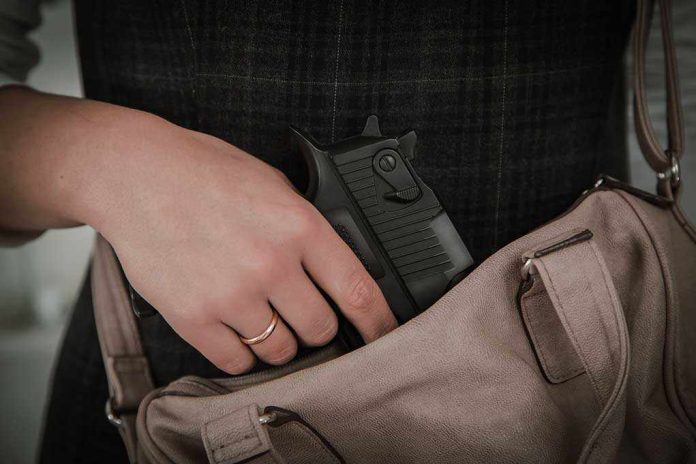
South Dakota has boldly expanded Second Amendment rights to public college campuses, allowing properly permitted individuals to carry firearms for self-defense despite opposition from leftist educational administrators.
Key Takeaways
- Campus carry for concealed weapons took effect July 1, 2025, on South Dakota public college campuses through Senate Bill 100.
- The law requires carriers to possess an enhanced or restricted enhanced concealed carry permit.
- Non-lethal self-defense items like pepper spray and mace are also explicitly permitted under the new law.
- Governor Larry Rhoden compared unfounded fears about campus carry to similar concerns about constitutional carry that never materialized.
- South Dakota joins a growing number of conservative states prioritizing citizens’ right to self-defense over leftist security theater.
Second Amendment Victory in South Dakota Education
South Dakota has taken a significant step toward restoring constitutional rights on college campuses by implementing campus carry legislation. The new law, which went into effect on July 1, 2025, allows individuals with enhanced concealed carry permits to bring firearms onto public post-secondary institution grounds throughout the state. This development marks a substantial victory for Second Amendment advocates who have long argued that gun-free zones create vulnerable targets rather than safe spaces.
“There is a lot of concern that we’ll see in the coming time that it is unfounded and that we can get along just right, honoring and respecting our Second Amendment rights the way they were intended,” Gov. Larry Rhoden.
Practical Implementation and Requirements
The campus carry measure was included in Senate Bill 100, signed into law by Governor Larry Rhoden earlier this year. Under the new provisions, students, faculty, staff, and campus visitors are permitted to carry concealed weapons, provided they possess an enhanced or restricted enhanced concealed carry permit. This requirement ensures that those carrying firearms on campus have undergone additional training beyond basic concealed carry certification, addressing some safety concerns raised by opponents.
The legislation also explicitly authorizes the carrying of non-lethal self-defense items like pepper spray and mace, which were previously in a legal gray area on many campuses. This comprehensive approach to self-defense options recognizes that different individuals may have different preferences or comfort levels with various self-defense tools, while still maintaining the primary goal of enabling citizens to protect themselves from potential threats.
Addressing Critics and Learning from Experience
As with any expansion of Second Amendment rights, the campus carry law has faced criticism from left-leaning administrators and faculty who predict dire consequences. However, Governor Rhoden has skillfully countered these arguments by pointing to South Dakota’s positive experience with constitutional carry, which was implemented six years ago despite similar apocalyptic predictions that never materialized.
“For years and years, law enforcement, there was a lot of wringing of the hands about what could happen with constitutional carry. None of that proved to be true. That was six years since we passed that law,” Gov. Larry Rhoden.
This historical perspective provides important context for evaluating current concerns. Time and again, predictions of increased violence following the expansion of gun rights have proven false. Instead, armed citizens have demonstrated responsible ownership and carrying practices, while potentially deterring those who might otherwise target unarmed populations in gun-free zones.
Part of a Broader Conservative Approach to Campus Safety
South Dakota’s campus carry law represents a rejection of the failed progressive approach to safety that relies on disarming law-abiding citizens while doing little to stop actual criminals. By recognizing that responsible, trained adults have the right to defend themselves wherever they may be, including on college campuses, South Dakota has aligned its policy with constitutional principles and practical reality.
The move places South Dakota among a growing number of conservative states that have implemented campus carry, including Texas, Georgia, Arkansas, and others. These states recognize that artificial restrictions on constitutional rights create vulnerable populations rather than safer communities. With proper training requirements and reasonable regulations, campus carry can enhance security while respecting fundamental rights, establishing a model for other states to follow.




